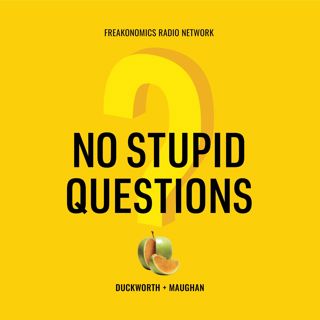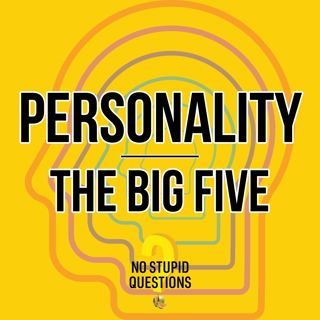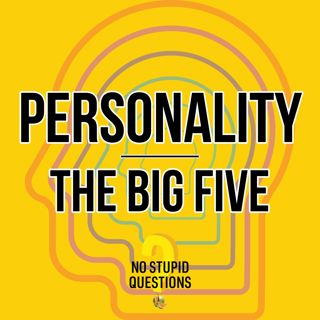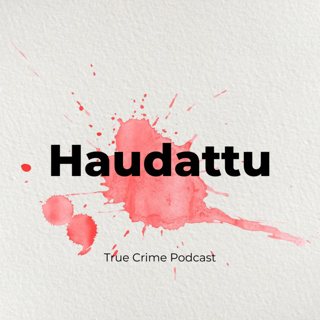
200. What’s the Difference Between Empathy and Sympathy?
Can you ever really know how another person feels? What’s the best way to support a grieving person? And why doesn’t Hallmark sell empathy cards? SOURCES:Daniel Batson, professor emeritus of psychology at the University of Kansas.Paul Bloom, professor of psychology at University of Toronto.Paul Polman, businessman, author, and former C.E.O. of Unilever. RESOURCES:“Empathy, Sympathy, and Emotion Regulation: A Meta-Analytic Review,” by H. Melis Yavuz, Tyler Colasante, Emma Galarneau, and Tina Malti (Psychological Bulletin, 2024).“Have Some Sympathy,” by Pamela Paul (The New York Times, 2023).“What is Club 33? Inside Disney’s Most Exclusive Club,” by Evelyn Long (Walt Disney World Magazine, 2022).“The Case Against Empathy,” by Sean Illing (Vox, 2019).Against Empathy: The Case for Rational Compassion, by Paul Bloom (2016).“Beautiful friendship: Social sharing of emotions improves subjective feelings and activates the neural reward circuitry,” by Ullrich Wagner, Lisa Galli, Björn H. Schott, Andrew Wold, Job van der Schalk, Antony S. R. Manstead, Klaus Scherer, and Henrik Walter (Social Cognitive and Affective Neuroscience, 2015).Just Babies: The Origins of Good and Evil, by Paul Bloom (2013).The Elegance of the Hedgehog, by Muriel Barbery (2006). “Immorality from Empathy-Induced Altruism: When Compassion and Justice Conflict,” by Daniel Batson, Tricia Klein, Lori Highberger, and Laura Shaw (Journal of Personality and Social Psychology, 1995).“The Four Horsemen: Contempt,” by Ellie Lisitsa (The Gottman Institute). EXTRAS:“Is Empathy in Fact Immoral?” by No Stupid Questions (2021).Parasite, film (2019).King James Bible, Job 2:1-13. The Book of Mormon, Mosiah 18:9. Hosted by Simplecast, an AdsWizz company. See pcm.adswizz.com for information about our collection and use of personal data for advertising.
16 Kesä 202440min

199. What Makes a Good Gathering?
Why do so many book clubs fall apart? Do the best parties have rules? And does Angela’s husband want to date you? SOURCES:Fredrik Backman, author.David Chavis, senior fellow at Community Science.Daniel Gilbert, professor of psychology at Harvard University.Sebastian Junger, journalist and author.David McMillan, clinical and community psychologist.Priya Parker, strategic advisor and author. RESOURCES:"Do Conversations End When People Want Them to?" by Adam M. Mastroianni, Daniel Gilbert, Gus Cooney, and Timothy D. Wilson (PNAS, 2021)."3 Steps to Turn Everyday Get-Togethers Into Transformative Gatherings," by Priya Parker (TED Talk, 2019).The Art of Gathering: How We Meet and Why It Matters, by Priya Parker (2018).Tribe: On Homecoming and Belonging, by Sebastian Junger (2016).Beartown, by Fredrik Backman (2016).“The 36 Questions That Lead to Love,” by Daniel Jones (The New York Times, 2015).A Man Called Ove, by Fredrik Backman (2012)."Sense of Community: A Definition and Theory," by David McMillan and David Chavis (Journal of Community Psychology, 1986). EXTRAS:"How Can You Get Closer to the People You Care About?" by No Stupid Questions (2023)."How Do You Connect With Someone You Just Met?" by No Stupid Questions (2023).A Man Called Otto, film (2022). Hosted by Simplecast, an AdsWizz company. See pcm.adswizz.com for information about our collection and use of personal data for advertising.
9 Kesä 202436min

198. What Does It Mean to Be “Cool”?
What’s the difference between being popular and being cool? How has social media changed the trend cycle? And what do Taylor Swift and Walmart have in common? SOURCES:Anette Asp, project manager and research coordinator at the California Institute of Technology.Lalin Anik, professor of marketing at Vrije University Amsterdam.Marc Bain, journalist.Judy Blume, young adult author.Colin Camerer, professor of behavioral economics at the California Institute of Technology.James Dean, 20th-century American actor.Ryan Hauser, Ph.D. candidate at the Yale School of Management.Michael Jordan, former professional basketball player.Johnny Miles, senior value manager at Workday.Steven Quartz, professor of philosophy at the California Institute of Technology.David Skinner, editor of Humanities magazine.Lindsey Vonn, Olympic alpine skier. RESOURCES:"Do You Think You're Cool?" poll by YouGov (2024)."What Cool Means Now," by Marc Bain (Quartz, 2020)."The History of Michael Jordan's 'Banned' Sneakers," (Complex, 2020)."Brand Coolness," by Caleb Warren, Rajeev Batra, Sandra Maria Correia Loureiro, and Richard P. Bagozzi (Journal of Marketing, 2019)."How to be Cool," by Johnny Miles (UVA Darden Ideas to Action, 2017).Cool: How the Brain’s Hidden Quest for Cool Drives Our Economy and Shapes Our World, by Steven Quartz and Anette Asp (2015)."How Capitalism Created 'Cool,'" by Bourree Lam (The Atlantic, 2015)."How Did Cool Become Such a Big Deal?" by David Skinner (Humanities, 2014). EXTRA:"Are We Getting Lonelier?" by No Stupid Questions (2023). Hosted by Simplecast, an AdsWizz company. See pcm.adswizz.com for information about our collection and use of personal data for advertising.
2 Kesä 202440min

197. Is It Wrong to Lie to Children?
Why do we tell kids that a fairy will give them cash in exchange for their teeth? How should we talk to them about scary things in the world? And is Mike one of the greatest operatic tenors of all time? SOURCES:Laura Wheatman Hill, journalist.George Lin, Ph.D. student in psychology at the University of Pennsylvania.Melinda Wenner Moyer, journalist and author.Luciano Pavarotti, Italian operatic tenor.Amy Stoeber, clinical psychologist.Jacqueline Woolley, professor of psychology at the University of Texas at Austin. RESOURCES:"Parenting by Lying," by Peipei Setoh, Petrina Hui Xian Low, Gail D. Heyman, and Kang Lee (Current Directions in Psychological Science, 2024)."Should You Always Tell Your Kids the Truth? It Depends," by Laura Wheatman Hill (CNN, 2021)."Parenting by Lying in Childhood Is Associated With Negative Developmental Outcomes in Adulthood," by Peipei Setoh, Siqi Zhao, Rachel Santos, Gail D. Heyman, and Kang Lee (Journal of Experimental Child Psychology, 2020)."The Santa Lie," by Melinda Wenner Moyer (2012). EXTRAS:"When Is It OK to Tell a Lie?" by No Stupid Questions (2021).How to Raise Kids Who Aren't A*******: Science-Based Strategies for Better Parenting — from Tots to Teens, by Melinda Wenner Moyer (2021).Life Is Beautiful, film (1997)."Love at the Five and Dime," song by Nanci Griffith (1986).The Hiding Place, by Corrie ten Boom (1971). Hosted by Simplecast, an AdsWizz company. See pcm.adswizz.com for information about our collection and use of personal data for advertising.
26 Touko 202438min

Extra: Angela Duckworth on “Masters of Scale”
WaitWhat C.E.O. Jeff Berman interviews Angela about “grit-scaling” and her unlikely path to academic celebrity. Hosted by Simplecast, an AdsWizz company. See pcm.adswizz.com for information about our collection and use of personal data for advertising.
23 Touko 202433min

196. What’s Wrong With Being a Little Neurotic?
Is there any upside to negative emotions? What can comedians teach us about dealing with pain? And why did Angela eat off of a stranger’s plate at a sushi bar? SOURCES:Ludwig van Beethoven, 18th-19th century composer and pianist.Jen Christensen, reporter and producer at CNN.Lauren Eskreis-Winkler, professor of management & organizations at Northwestern University.Sigmund Freud, neurologist and founder of psychoanalysis.Shirley MacLaine, actor.George Vaillant, professor of psychiatry at Massachusetts General Hospital.Ali Wong, comedian. RESOURCES:"The Sad Clown: The Deep Emotions Behind Stand-Up Comedy," by Jen Christensen (CNN, 2018)."Neuroticism," by Jennifer L. Tackett and Benjamin B. Lahey (The Oxford handbook of the Five Factor Model, 2017)."Thinking Too Much: Self-Generated Thought as the Engine of Neuroticism," by Adam M. Perkins, Danilo Arnone, Jonathan Smallwood, and Dean Mobbs (Trends in Cognitive Sciences, 2015)."Survivor Mission: Do Those Who Survive Have a Drive to Thrive at Work?" by Lauren Eskreis-Winkler, Elizabeth Shulman, and Angela Duckworth (The Journal of Positive Psychology, 2014)."Age Differences in Personality Traits From 10 to 65: Big Five Domains and Facets in a Large Cross-Sectional Sample," by Christopher J. Soto, Oliver P. John, Samuel D. Gosling, and Jeff Potter (Journal of Personality and Social Psychology, 2011)."Adaptive Mental Mechanisms: Their Role in a Positive Psychology," by George Vaillant (American Psychologist, 2000).The Harvard Study of Adult Development. EXTRAS:Big Five Personality Inventory, by No Stupid Questions (2024).“Personality: The Big Five,” series by No Stupid Questions (2024).Terms of Endearment, film by James L. Brooks (1983)."Invictus," poem by William Ernest Henley (1888). Hosted by Simplecast, an AdsWizz company. See pcm.adswizz.com for information about our collection and use of personal data for advertising.
19 Touko 202438min

195. Can You Be Too Nice?
Where is the line between a good guy and a doormat? Do people with sharp elbows make more money? And why did Angela’s mother give away her birthday present?Take the Big Five inventory: freakonomics.com/bigfive SOURCES:Kristen Bell, actor.Jeff Bezos, founder and executive chairman of Amazon.Harry Connick Jr., singer, pianist, and actor.Juli Fraga, psychologist and writer.Adam Grant, professor of management and psychology at the University of Pennsylvania.Allison Sweet Grant, writer.Timothy Judge, chair of the department of Management and Human Resources at The Ohio State University.Frank Jacobs, journalist and columnist at Big Think.Beth Livingston, professor of industrial relations at the University of Iowa.Topher Payne, playwright and screenwriter.Dax Shepard, actor and podcast host. RESOURCES:"Are You a Chronic People-Pleaser? Here’s How to Be Kinder to Yourself," by Juli Fraga (The Washington Post, 2023)."Geopsychology: Your Personality Depends on Where You Live," by Frank Jacobs (Big Think, 2023)."We Need to Talk About ‘The Giving Tree,'" by Adam Grant and Allison Sweet Grant (The New York Times, 2020).The Tree Who Set Healthy Boundaries, by Topher Payne (2020)."Do as You’re Told! Facets of Agreeableness and Early Adult Outcomes for Inner-City Boys," by Margaret Kern, Angela Duckworth, Sergio Urzúa, Rolf Loeber, Magda Stouthamer-Loeber, and Donald Lynam (Journal of Research in Personality, 2013).Give and Take: Why Helping Others Drives Our Success, by Adam Grant (2013)."Do Nice Guys — and Gals — Really Finish Last? The Joint Effects of Sex and Agreeableness on Income," by Timothy Judge and Beth Livingston (Journal of Personality and Social Psychology, 2012). EXTRAS:Big Five Personality Inventory, by No Stupid Questions (2024).“Personality: The Big Five,” series by No Stupid Questions (2024)."Are You Suffering From Burnout?" by No Stupid Questions (2023). Hosted by Simplecast, an AdsWizz company. See pcm.adswizz.com for information about our collection and use of personal data for advertising.
12 Touko 202438min

194. Is It Okay to Be an Introvert?
What’s the difference between being introverted and being shy? What are extroverts so cheerful about? And does Angela’s social battery ever run out?Take the Big Five inventory: freakonomics.com/bigfive SOURCES:Susan Cain, author.Will Fleeson, professor of psychology at Wake Forest University.Sigmund Freud, neurologist and founder of psychoanalysis.Adam Grant, professor of management and psychology at the University of Pennsylvania.Carl Jung, psychiatrist and psychoanalyst.Donald Kamentz, founder and C.E.O. of Contigo Ed.Sonja Lyubomirsky, professor of psychology at the University of California, Riverside.Seth Margolis, professor of biological chemistry at Johns Hopkins University. RESOURCES:"A Crucial Character Trait for Happiness," by Arthur C. Brooks (The Atlantic, 2023)."Experimental Manipulation of Extraverted and Introverted Behavior and Its Effects on Well-Being," by Seth Margolis and Sonja Lyubomirsky (Journal of Experimental Psychology: General, 2020)."Challenges to Capture the Big Five Personality Traits in Non-WEIRD Populations," by Rachid Laajaj, Karen Macours, Daniel Alejandro Pinzon Hernandez, Omar Arias, Samuel D. Gosling, Jeff Potter, Marta Rubio-Codina, and Renos Vakis (Science Advances, 2019)."Rethinking the Extraverted Sales Ideal: The Ambivert Advantage," by Adam Grant (Psychological Science, 2013)."The Power of Introverts," by Susan Cain (TED Talk, 2012).Quiet: The Power of Introverts in a World That Can't Stop Talking, by Susan Cain (2012)."Personality Trait Change in Adulthood," by Brent W. Roberts Daniel Mroczek (Current Directions in Psychological Science, 2008)."Toward a Structure- and Process-Integrated View of Personality: Traits as Density Distributions of States," by William Fleeson (Journal of Personality and Social Psychology, 2001). EXTRAS:Big Five Personality Inventory, by No Stupid Questions (2024).“Personality: The Big Five,” series by No Stupid Questions (2024). Hosted by Simplecast, an AdsWizz company. See pcm.adswizz.com for information about our collection and use of personal data for advertising.
5 Touko 202435min





















